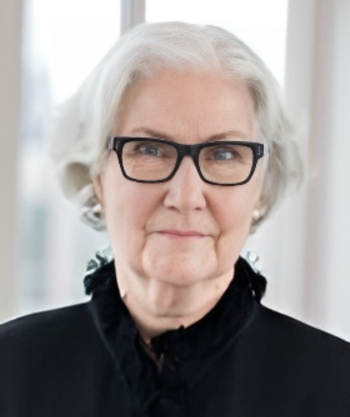
2017: Suzanne Plihcik
The Junior League of Greensboro
If history is measured by its headlines, a future Junior Leaguer might look back at 2017 as a moment of deep division—in politics, in culture, in faith, and in our very own backyards.
It would be easy to look at the challenges we face today as global citizens and feel a sense of disillusionment, even powerlessness. But there are some of us, like this year’s winner of the Mary Harriman Award, that remind us of who we are and what we’re truly capable of.
Over a hundred years ago, in the heart of the Industrial Revolution, our country was pushing the envelope to define what its future would be—to lift itself out of its hard-won, horse-drawn beginnings into a time of innovation and abundance—while at the same time ignoring the core principles that make us human: graciousness, respect, and charity. It was a time when it became very clear who were the Haves and who were the Have-nots. But where others saw apathy and inevitability, Mary saw an opportunity for us to evolve as a society as a whole. It was this turbulent soup of change that forced us to take a hard look at who we wanted to be as Americans, and what a truly industrious modern society should look like.
Suzanne Plihcik might say that 2017 doesn’t appear all that different from 1901. Where Mary had thrown her heart and soul into the settlement movement—a defining issue of the time—Suzanne has brought that same level of passion and rigor to one of the most difficult issues of today: our country’s enduring and increasingly complicated racial divide.
Suzanne represents that rare quality that you find in true change makers—the will to dig deep. And for Suzanne, that starts with asking the tough questions.
When Suzanne looks at the biases and injustices that have become commonplace, she isn’t asking how we got here, or what we’re getting wrong—but rather why are we allowing it to continue? And that might be the toughest question of all. Because it doesn’t assume that a system is broken—or even society at large. It asks us to look at what’s broken in each and every one of us.
But identifying the problem is just the beginning. The next question we have to ask is how do we go about mending it?
As Junior Leaguers we know that results start with doing—finding a challenge we can get our hands around and collaborating with other dedicated hearts and minds to achieve a common goal. When Suzanne joined the Junior League of Greensboro, North Carolina in 1982, she was presented with exactly that opportunity.
The most pressing concern in her community at that time was the merger of three school systems: Guilford County Schools, Greensboro City Schools, and High Point City Schools. Suzanne was appointed to serve on a committee responsible for studying the potential merger and identifying the challenges it would face. As with any large-scale change, the merger was met with passionate opposition from various constituents. It wasn’t until 1993 when the school systems finally merged that Suzanne’s careful and sensitive work was felt across the board—from improved district-wide academic scores, to boosted morale among teachers. The new district has since become a model for other schools around the country looking to adopt strategies for success in the face of overcrowding and tightening budgets.
Through her experiences with The Junior League, Suzanne developed a keen interest in racial bias and institutional racism in education, healthcare, and criminal justice. Suzanne believes that each one of us can influence public policy by studying the racial bias that impacts all systems—from the achievement gap in education, to the disparate outcomes in healthcare, to the differences we see in law enforcement interaction.
Suzanne has committed herself to guiding others to address racism as the root cause of many issues facing our community today. Her work on the Public Affairs committee has influenced other Junior League members to get involved in public policy and advocacy work—helping to lead letter-writing campaigns, and teaching members how to effectively communicate with city and state officials.
Suzanne has spoken at a number of workshops including the National Women's Political Caucus, the North Carolina Women's Political Caucus, and the National Association for the Education of Young Children—and she served as our very own President of The Association of Junior Leagues from 1990-1992. We’re excited and grateful to have Suzanne with us today as the recipient of the 2017 Mary Harriman Award.
